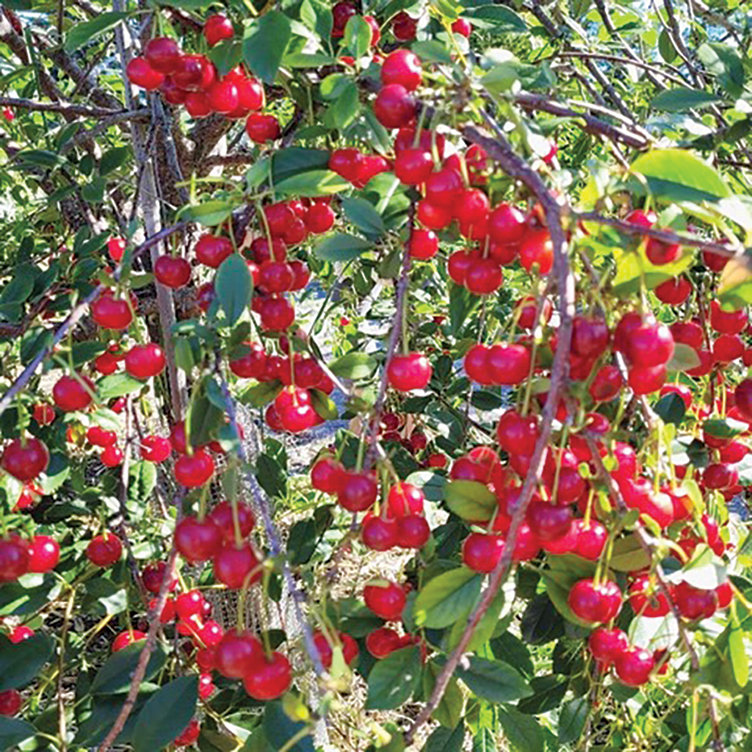Roots of Resilience
Last year, Levin’s property handily won first place for Edible Gardens in Front Yards in Bloom, another municipal program discontinued this year to focus on “core services.” (It’s now being resurrected by the Edmonton Horticultural Society as a pilot program with community leagues.) While cutting the beautification initiative was controversial, the overall impact pales in comparison to losing the City Farm and suspending funds for Sustainable Food Edmonton’s largest program, a community garden initiative supporting urban agriculture projects across the city.
Edmonton Food Bank sends out 40,000 food hampers monthly, double the amount since 2021, according to program director Carrie-Anne Cyre. When we met at the north central food bank depot on a morning in April, about a month after City Farms was nixed, the line of clients was already twenty deep. Folks used wagons, suitcases, backpacks and bags to transport food home, not knowing the hampers might be lighter this summer, at least when it comes to produce.
Last year, in addition to collecting leftover and excess goods from grocers and restaurants that would otherwise become waste, Cyre’s team started collecting their leftover seeds to start a seed bank. This spring, those seeds and seed packets were distributed to clients, encouraging them to grow their own produce.
Over at Sustainable Food Edmonton, community garden facilitator Junetta Jamerson (Top 40, ’09) had a couple dozen pending applications for new or expanding community gardens when she learned the non-profit’s flagship program had been defunded. Jamerson encourages people to get creative with the spaces they have: “Even if you have a pot, even if it’s not a real pot, and it’s just a bucket that you put a hole in the bottom, start building these skills — get your hands in the dirt.”
When food insecurity is at a high point in Alberta, the decision to cut these programs seems short-sighted. From what public information I gathered, the total cost to the public for funding the City Farm and Sustainable Food Edmonton program combined was about $500,000. In the meantime, organizers and volunteers with all three initiatives are looking for alternative funding to increase food resilience. As well, Kingsway Mall is nearly doubling its rooftop garden output to more than 136 kilograms of produce for the Edmonton Food Bank — a tiny fraction of what City Farms offered, but it’s not nothing.
Growing and sharing food, planting a food forest, or starting a community garden won’t fix food insecurity, but they do help build what Jamerson calls “an ecosystem of care.” As food security concerns grow, grassroots efforts and creative thinking will be essential where publicly funded programs fall short. Lucky for Edmonton, more and more people are beginning to cultivate that kind of food resilience from the ground up.
Like this content? Get more delivered right to your inbox with Ed. Eats
A list of what’s delicious, delectable and delightful.
This article appears in the July/August 2025 issue of Edify
